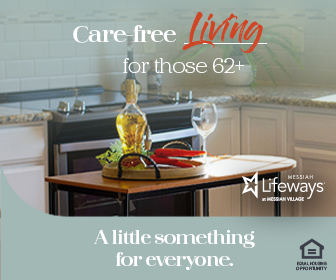Family caregivers come in a variety of forms. When it comes to caregiving for an aging loved one, most often it’s the spouse or an adult child handling the majority of the care. As we know, caregiving is a labor of love, filled with ups and downs, highs and lows. On one hand it’s a chance to reconnect with and “repay” an aging parent, spouse, or relative for their love and attention. But caregiving is also fraught with literal and figurative heavy lifting, burnout, and the feeling of being overwhelmed. This especially true if you fall into the category of a “Sandwich Generation” Caregiver.
A balancing act
The “Sandwich Generation” Caregivers, coined by social worker Dorothy Miller in 1981, “originally referred to younger women in their 30s and 40s who were taking care of both their children and parents.” It’s further characterized over the last several decades, as a group of people ranging from approximately age 30 to 65+ who care for their aging parents while supporting their own children, or even grandchildren. They find themselves balancing their time caring for a parent or parents whose health and well-being is on a significant decline. While simultaneously raising or supporting their young children, teens, or even college age children.
Journalist Carol Abaya continued to study and refine the term as our aging society grows and lives longer. Though quirky, her nuanced descriptors make a lot of sense.
-
- Traditional – those sandwiched between aging parents who need care and/or help and their own children.
- Club Sandwich – those in their 50s-60s sandwiched between aging parents, adult children and grandchildren, or those in their 30s-40s, with young children, aging parents and grandparents.
- Open Faced – anyone else involved in elder care.
The sandwich squeeze
Most people outside the senior care industry aren’t as familiar with the sandwich generation term. But because caregiving in general is a growing challenge, the additional stressors that this sandwich group faces, needs more recognition and support. If we follow the subgroups from Carol Abaya, caregivers in the “open faced” or the conventional cohort will indeed face many challenges as caregivers. Yet these challenges are general coming from one direction. Those in the “Traditional” or “Club Sandwich” groups have challenges bearing down on them from both directions.
Conventional family caregivers spend an average of 24.4 hours per week providing care1. Now just imagine a sandwich generation caregiver who still works full-time and has several teenage kids who need rides to soccer or band practice, make dinner for the family, grocery shop, clean and maintain their own home, health and well-being. The list can go on and on. You can imagine this would make for a pretty stressful lifestyle.
Recognition and support
To help this particular segment of caregivers, we need to shed light and recognize their taxing journeys. Equally, we must reach out to them and offer them support, insight and resources to make sandwich generation caregiving less of a burden.
On Tuesday, March 26, Messiah Lifeways® Coaching will host a forum and panel discussion presented by the Cumberland County Commission for Women designed to assist and empower sandwich generation caregivers. Participants can learn about resources, gain insight and get expert advice.
Panelists include:
- Vicki Hoak, CEO, PA Homecare Association
- Laura Souders, Healthier Spaces Organizing
- Aviv S. Bliwas, Esq., Elder Law Attorney
- Susan Severino, PA, RN, Severino Health Advisors
The event will be held in the Hostetter Enrichment Center located inside Village Square on the campus of Messiah Village. A light dinner will be served. Seating is limited. To register, call 717.591.7225 or register online at MessiahLifeways.org/Events.
1National Alliance for Caregiving and AARP. (2015) Caregiving in the U.S.





